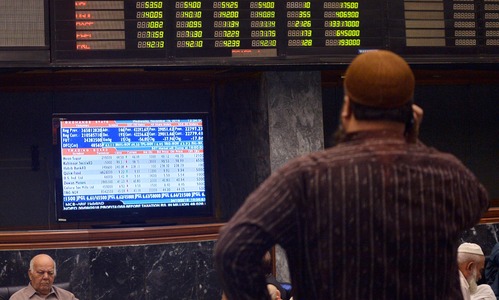ISLAMABAD: The economic growth outlook for Pakistan is projected to trend up to 5.2 to 5.4 per cent in both 2017 and 2018, forecasts the latest Economic and Social Survey of Asia and the Pacific 2017.

Private consumption and public investment would drive the economy, supported by higher consumer credits, improved security conditions and ongoing infrastructure projects under the China-Pakistan Economic Corridor (CPEC), says the survey which focused on ‘Governance and Fiscal Management’.
Increased capital inflows from China to finance projects under CPEC have helped generate foreign exchange receipts, although imports of transport and construction-related items also increased, the survey by the United Nations Economic and Social Commission for Asia and the Pacific (UNESCAP) notes.
The survey says that private investment was stronger in Pakistan as CPEC helped attract more foreign investment.
On the supply side, the large-scale manufacturing sector should benefit from greater energy security and a notable cut in gas prices for industrial use. Similarly, the agricultural sector is likely to improve, with expanded production of cotton, sugarcane and maize, the survey notes.
Meanwhile, a rebound in global oil prices and an upward adjustment in domestic petrol prices would push up inflation during the fiscal year 2017-18 from 5pc to 5.5pc, which is still within the official target of 6pc.

The survey says that in the medium-term, energy shortages would continue to result in the country’s below-potential growth. Despite recent improvements, energy sector reforms would need to further reduce subsidies, tackle the accumulation of arrears and improve technical efficiency.
Weak governance partially explains the low level of tax revenues in several countries in the region, as the quality of governance affects the tax morale of taxpayers, the incentives to operate in the formal sector and the level of compliance of tax officials with relevant laws, the survey notes.

Factors that contribute to or encourage fiscal corruption include: complicated tax laws; excessive discretionary power vested in tax administrators and the necessity for frequent interactions between taxpayers and tax officials; weak legal and judicial systems; lack of accountability and transparency in tax administration; and low salaries in the public sector.
Referring to the tax directory of its members of the parliament and complete directory of its registered tax payers, the survey says Pakistan has become only the fourth country in the world to have made such information on taxpayers publicly available. Importantly, the records revealed that of a population of 180 million, Pakistan had only 750,000 registered income tax payers.
Moreover, almost half of the 1,167 members of six houses of parliament — national assembly, senate and four provincial assemblies paid no tax at all demonstrating the weak tax morale even among legislators. However, making all such data available in the public domain will not yield results if follow-up measures are not taken and implementation is not adequate.
In Asia and the Pacific, ESCAP calculations show that governance affects domestic resource mobilisation efforts. Among developing economies, the level of tax revenues in five countries including Pakistan has been adversely affected by the deterioration of governance during 2005-2014.
Published in Dawn, May 4th, 2017













































